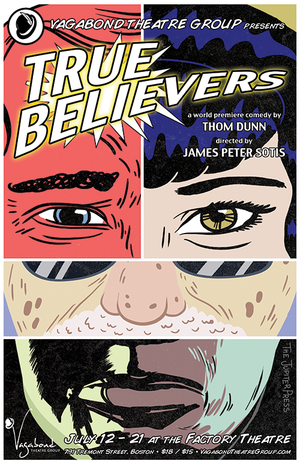Clarion is a highly-renowned training ground for sci-fi/fantasy writers, so naturally, I wanted to make an impression. Hence, I introduced myself to my cohort and award-winning instructors by writing a recursive metafictional time travel story. The main “plot” was only about two pages, followed by another thirty pages of footnotes, each with multiple internal references to other footnotes, all to explain the theoretical science behind the causal loop that lead to the main characters’ spacetime-crossed romance. This had the effect of taking the reader on a self-directed non-linear journey through characters’ pasts, presents, and futures, in an endless circle of effect-cause-effect that was unique to each reader.
That was 2013. Me and the other 17 members of my cohort still talk regularly; some of them have already become award-winning authors in their own rights. And to this day, not a week goes by without at least one of them giving me shit for that story. But I have a good excuse for my obnoxious ambitions:
I have ADHD, so it made perfect sense. To me.
Read MoreWhen I got the call that I was accepted to Clarion, I was standing on the waterfront in Valdez, Alaska. My fiancé, Bevin, was in the middle of tech week for a play that she was producing when Tanya called me and said, "Hey, do you want to spend 6 weeks this summer writing fiction with a team of incredible teachers and other aspiring weirdos like yourself? Also it starts in 4 weeks and we need to have your answer tomorrow." Coordinating a phone call with your partner over a 4-hour time difference to ask her if she would mind if you went away again and also spend all of your money on playing make-believe in Californa is, well, not a conversation I'd wish on anyone. I'm kidding, of course; it went very well (clearly), because Bevin is incredibly supportive of me. But it was still a big decision.
If you know me in person, then you know I've talked about it enough: the Clarion Writer's Workshop at UCSD was an incredible and life-changing experience for me as both a person and a writer. And I wouldn't have been able to do it if not for scholarship support from the Clarion Foundation, which helped to ease some of the financial load. Don't get me wrong, if I had absolutely bankrupted myself and lost my job in order to attend Clarion, it still would have been worth it (neither of those things actually happened, for which I'm grateful). And so naturally, I want to give back.
Read More














 Read this book. I am not even kidding.
The latest novel from Charles Yu, How to Live Safely in a Science Fictional Universe is a brilliantly tongue-in-cheek examination of memories and father-son relationships, through the veil of cheeky sci-fi and wacky time travel concepts. Charles Yu (the character, not the author) is a time travel mechanic with a Masters Degree in Applied Science Fiction. While on a quest to reconnect with his estranged father, Charles Yu (the character) accidentally shoots Future Charles Yu (the future character) in the stomach, but not before Future Charles Yu hands him a copy of a book called How to Live Safely In a Science Fictional Universe, which was/is/will be written by Charles Yu (the character. And the author? I don't know).
Read this book. I am not even kidding.
The latest novel from Charles Yu, How to Live Safely in a Science Fictional Universe is a brilliantly tongue-in-cheek examination of memories and father-son relationships, through the veil of cheeky sci-fi and wacky time travel concepts. Charles Yu (the character, not the author) is a time travel mechanic with a Masters Degree in Applied Science Fiction. While on a quest to reconnect with his estranged father, Charles Yu (the character) accidentally shoots Future Charles Yu (the future character) in the stomach, but not before Future Charles Yu hands him a copy of a book called How to Live Safely In a Science Fictional Universe, which was/is/will be written by Charles Yu (the character. And the author? I don't know).